Neuroscientist. Science Communicator. Swimmer. Goofball.
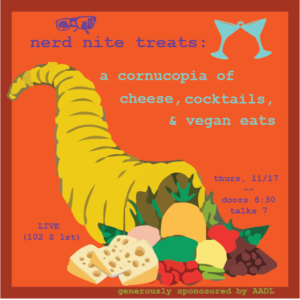
Gobble gobble! Feast your eyes on the lineup for NNA2 #40, featuring a hearty helping of some of the best folks from Ann Arbor’s food scene. Joel Panozzo of The Lunch Room guides us through his approach to veganism, including his take on why tofu tastes bad. Ann Arbor Distilling Company’s Phil Attee gives us a glimpse into how booze is born, and walks us through a day in the life of a distiller. Last, but certainly not least, Mike White from Zingerman’s slices us off a hunk of some pungent, delectable cheese knowledge. So put on your elastic-waist pants and turkey-trot your way over to Live — and raise a glass with your fellow nerds!
When: Thursday, November 17, 2016, doors at 6:30 pm, talks at 7 pm!
Where: LIVE, 102 S First St, Ann Arbor
$$$: NO COVER, thanks to your friendly neighborhood AADL!
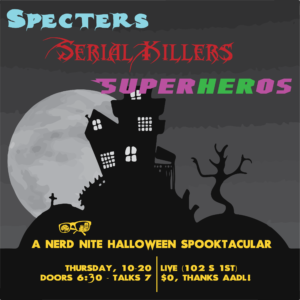
NNA2 edition #39 is coming at you in all its vaguely Halloween-y glory! Filmmaker Jen Proctor will explore the paranormal communication and hear voiiiiiices from beyond – or at least, what believers claim are voices from beyond. Sara Wedell, who has read Laura Ingalls Wilder’s Little House books more times than you have, will reveal the sinister side on the prairie – a family of serial killers preying on pioneers. And superHERoes Chelsea Liddy and Amanda Reyes Aquino of Comique Con will talk about the evolving roles of women in the world of comics. So put on your smarty-pants glasses and come on out to raise a few beer glasses!
When: Thursday, October 20, 2016, doors at 6:30 pm, talks at 7 pm!
Where: LIVE, 102 S First St, Ann Arbor
$$$: Free, thanks to your friendly neighborhood AADL!
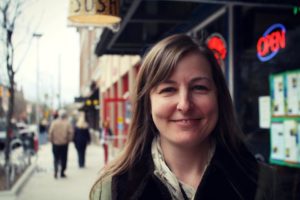
Jen Proctor: Talking to the Dead: A History of Spirit Communication Technologies – Jen Proctor
From the telegraph to mobile apps, from Poltergeist‘s televisual ghouls toUnfriended‘s possessed Skype sessions, from EVPs to spirit photography, this talk will explore the history of attempts to communicate with the dead using electric and electronic technologies. We’ll see and hear terrifying and not-so-terrifying evidence of spectral messages, and examine what exactly constitutes evidence for investigators of the paranormal. GHOSTLY CAT VIDEOS WILL BE INCLUDED!
About Jen: Proctor is a filmmaker, media artist, and Associate Professor of Journalism and Screen Studies at UM-Dearborn. She is currently working on a documentary about the relationship between technology, the paranormal, and spiritual belief. In her spare time, she studies abnormal feline behavior.
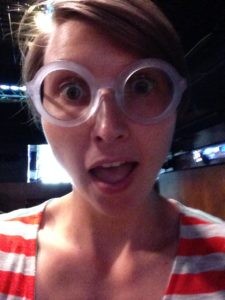
Sara Wedell: Little Slaughterhouse on the Prairie
Frontier life in the 1870s was hard and the massive prairie held endless dangers – aside from the harsh elements, the grueling work, and the salt pork-heavy diet. This is the sinister side of Little House on the Prairie – the true story of a family of serial killers targeting pioneers on their way out West.
About Sara: Sara Wedell is a production librarian at the Ann Arbor District Library and a Nerd Nite Ann Arbor Co-Boss. She knows it’s not cool to love Laura Ingalls Wilder, BUT SHE DOES IT ANYWAY. #sunbonnetsquad

Chelsea Liddy and Amanda Reyes Aquino: A History of Women in Comics
We’ll discuss how women’s roles in and in creating comic books have evolved over the past 100 or so years, as well as how things are changing and the future that Comique Con is helping to create.
About Chelsea, Amanda, and Comique Con: ComiqueCon is a one-day celebration of the contributions of women to the sequential arts. Launched in 2015 in Metro Detroit, the event brings together comics all-stars and their fans for a wicked awesome day of comics and cosplay! Prior year featured guests have included Alex de Campi, Mikki Kendall, Marguerite Sauvage, Carey Pietsch, Nancy A. Collins and Mairghread Scott. In an industry that consistently under-solicits women, we’re spotlighting the work of women in comics and encouraging representation and inclusiveness.
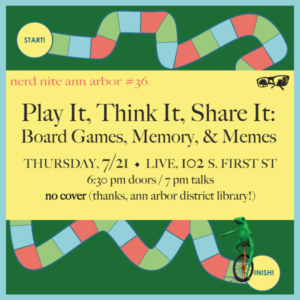
Summer’s here and the time is right for nerding out with friends! The 36th edition of NNA2 will be next Thursday, July 21! Up this month: a fantastic trio of full-spectrum talks by some of Ann Arbor’s greatest. Katie Prater will take us beyond The Game of Life to introduce us to the wide world of European board games. Lorraine Suzuki will explain what’s going on in your brain when you’re learning to ride a bike (and why that’s different than memorizing state capitals!). And Danny Mayer will show us how evolution shapes our lives by impacting culture as well as our genes. So grab a drink and a couple of pals to come beat the heat with your fellow nerds!
When: Thursday, July 21, 2016, doors at 6:30 pm, talks at 7 pm!
Where: LIVE, 102 S First St, Ann Arbor
$$$: Free because Ann Arbor District Library has got you covered!
Katie Prater: “The Death of The Die: The Rise of “Euro” board games in America”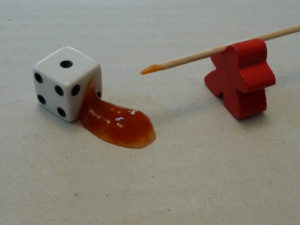
Did you “Pass Go and Collect $200” on your way in to work today? If you grew up playing classic American board games as a child, you’re likely familiar with never-ending games of Monopoly or squabbling over some uninhabitable territory of Australia in Risk. But board games aren’t just for kids anymore! Adult nerds all over America are gaming, and loving it! We’ll discuss the characteristics of classic American games, the differences between those and Eurogames, and why everyone who tries them agrees that Eurogames are much more fun! If you’re interested in spending your nights and weekends breeding sheep, building temples, recycling garbage, and taking control of your own destiny, this talk will get you started!
>About Katie: When not in the neuroscience lab at UofM, Katie can often be found teaching new board games to friends, with her nose in a book, playing computer games with her husband, or enjoying the outdoors. She also loves attending GenCon, where she can check out the newest board games and show off her Kaylee Frye costume. She recently completed her PhD, during which she also co-founded a science communication organization called RELATE (www.learntoRELATE.org). Follow her on Twitter at @katieeprater.
Lorraine Suzuki: “Motor learning and memory systems”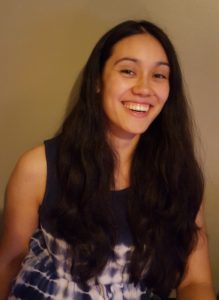
As we learn motor skills we use two memory systems. These systems are separate and can compete with each other. My talk will go over some evidence of this interaction within the brain.
About Lorraine: Lorraine is a PhD candidate in the School of Kinesiology at the University of Michigan. She obtained a Bachelor’s degree in Biology and a Master’s degree in Genetics from the University of Western Brittany (Universit de Bretagne Occidentale. She now works on understanding how learning new motor skills affects brain networks.
Danny Mayer: “Genes, Memes, and Human Beings: Why Evolution Isn’t Just a “Life” Thing”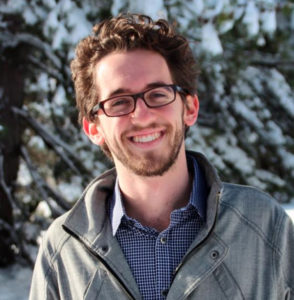
Evolution is a part of our everyday lives. We might talk about how someone’s beliefs have evolved. We might explain the success of an app or business as “survival of the fittest.” But rarely do we consider that evolution—in the real, scientific sense—might be able to explain things other than life. Maybe life isn’t as special as we think—after all, viruses aren’t considered by science to be alive, and yet they evolve in more or less the same way that living cells do. Enter memetics: the study of how units of cultural information (memes) evolve. Using memetics, genetics, and philosophical theories of mind and consciousness, we’ll explore how evolution has shaped the world of information that we live in, how our identities are made up of both genes and memes, and how evolution plays an enduring role in the future of our species.
About Danny: Danny Mayer is a web designer and entrepreneur who’s proud to have called Ann Arbor home for the past 6 years. After getting a degree in English from U of M, he shifted his focus to web design and programming, and now works at Magnetic, an ad tech company. His passion for design and development has given birth to several websites and even an app (coming soon), and late last year he co-founded Hyzer Shop, a Disc Golf retail shop, designing and developing the company’s cutting-edge online store. Alongside all this, Danny loves keeping up with his academic interests, which include literature, philosophy, and evolutionary biology. He’d like to thank his family, friends, and amazing girlfriend, all of whom inspire him to be better, and to keep learning, creating, and laughing every day. Follow him on Twitter at @damayer92.
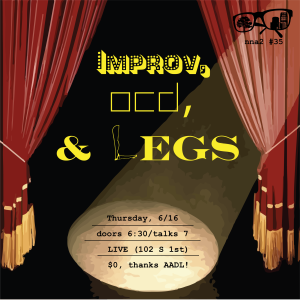
We’re back! NNA2 returns from break Thursday, June 16 — mark your calendar! We’ve got a solid session featuring quick thinking, robotic legs and sticky brains! First up, Patti Smith schools us on the history of improv comedy, illuminating the ways its concepts pops up in our day-to-day lives. Shai Revzen opines on the greatness of legs, and walking us through his related research — making robot legs and mobility better and better. Capping things off, social worker Sara Tischler breaks down obsession, compulsion, OCD research, and techniques that help people “un-stick” the brain. Grab a fellow nerd, order a refreshing drink, and we’ll see you there!
When: Thursday, June 16, 2016, doors at 6:30 pm, talks at 7 pm!
Where: LIVE, 102 S First St, Ann Arbor
$$$: NO COVER! Thanks for having our back, Ann Arbor District Library!
Patti Smith — Improv is Life: History & Facts About Improv Beyond “Whose Line is it Anyway?”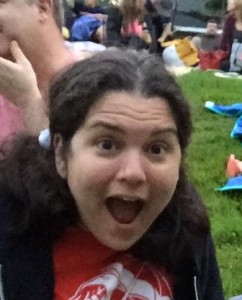
We use improv our entire lives, even we don’t realize it. One could say that humans started doing improv when we started using the spoken language. But how did improv as art form get started? And what does it look like now? Most importantly–how and why should YOU try it? Patti Smith will talk about the history of the art form, examples of improv, and local opportunities to try it yourself.
About Patti: Patti Smith is a special education teacher and writer who lives in Ann Arbor with her husband and cats. Patti is the author of two books about history in Ann Arbor, the most recent of which is The History of Ann Arbor’s People’s Food Co-op. She loves storytelling, most forms of public speaking, especially improv! She believes that improv is for everyone!
Sara Tischler — Un-sticking your Brain: OCD and its Treatment
 Obsessions are “sticky” thoughts, images or impulses that occur over and over again and feel uncontrollable. Compulsions are repetitive behaviors or rituals that someone uses to get rid of the obsessions. Together they make up obsessive compulsive disorder, or OCD. Hear about OCD and exposure and response prevention (ERP), an evidence-based treatment for the mental health disorder that affects approximately 3.3 million people in the United States.
Obsessions are “sticky” thoughts, images or impulses that occur over and over again and feel uncontrollable. Compulsions are repetitive behaviors or rituals that someone uses to get rid of the obsessions. Together they make up obsessive compulsive disorder, or OCD. Hear about OCD and exposure and response prevention (ERP), an evidence-based treatment for the mental health disorder that affects approximately 3.3 million people in the United States.
About Sara: Sara is a clinical social worker in the department of outpatient psychiatry at the University of Michigan Health System. She has a Bachelor’s degree in psychology from Michigan State University (Go Green! Sorry, Ann Arbor) and a Master’s in Social Work from the University of Michigan. She completed her internship and fellowship at the University of Michigan Child and Adolescent Outpatient Psychiatry clinic, where she is now a staff social worker. She provides psychotherapy for children of all ages and their families. Besides OCD, her clinical interests include anxiety disorders, autism spectrum disorder, depression, and trauma/grief. She was born and raised in Southeast Michigan and lives with her partner, Alex. Together they have two beautiful (furry) “children” — Phoebe the dog and Bu the cat, whom she talks about constantly.
Shai Revzen — A Few Reasons Why I Love Legs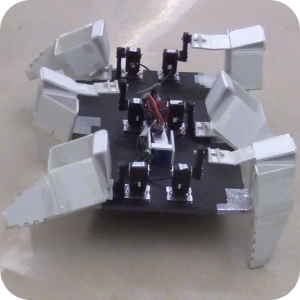
No animals other than ourselves move on wheels. That might seems strange, given how efficient and effective wheels are for moving around on land. Nevertheless, there are many good reasons to love legs. These include more obvious reasons, like the ability to use sparse footholds on rough surfaces, and less obvious reasons, such as newly discovered ways that legs make it easier for animals to control their movements. Insights from the animal world are leading to new and amazingly capable walking and running robots.
About Shai: Shai Revzen is an Assistant Professor in the Electrical Engineering and Computer Science Department and in the Ecology and Evolutionary Biology Department of the University of Michigan, and heads the BIRDS Lab. This confusion about where he belongs isn’t new — he is a bit of many things that don’t seem to fit together neatly in a box. His research focuses on the biomechanics of organisms, the legged locomotion of robots, and the mathematical tools that connect the two. Before becoming an academic by running cockroaches on treadmills for six years at the University of California at Berkeley, he worked as a Chief Architect in mid-sized company in Silicon Valley, went around the world, and was unabashedly nerdy.
Nerds! We’re taking a break during May – but check back for our next awesome event on June 16!

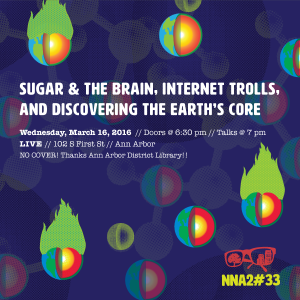
We’ve got a special WEDNESDAY edition of NNA2 headed your way this March! Monica Dus will reveal the secret of why that sugar-free cookie just ain’t the same as the real thing. Lindsay Blackwell will explain the difference between harmless and super-scary trolls on the interwebs. And Brian Worthman will take us on a journey by describing how smarty-pants scientists figured out the makeup of the Earth’s crust. Three of the greatest nerds that A2 has to offer, awesome friends, and booze to boot? Get down to LIVE to geek out with us!
When: WEDNESDAY, March 16, 2016, doors at 6:30 pm, talks at 7 pm!
Where: LIVE, 102 S First St, Ann Arbor
$$$: NO COVER! bc Ann Arbor District Library RULEZ the SCHOOLZ!!
Monica Dus: “50 Shades of Sweet: How Sugar Dominates the Brain”
We like to think we can resist life’s temptations, but ever tried saying no to a cookie? It whispers to you, it calls to you. Sugar is a powerful force: it hijacks your brain and wins nearly all the time … I’ll talk about how this happens and also how, even if your mouth is fooled by fake sugar, your brain is not.
It whispers to you, it calls to you. Sugar is a powerful force: it hijacks your brain and wins nearly all the time … I’ll talk about how this happens and also how, even if your mouth is fooled by fake sugar, your brain is not.
About Monica: I got my first microscope at age 7 and had an idyllic childhood in Italy pulling hair off Barbies and legs off bugs and looking at them under the microscope. What really drew me to science, however, was the pervasive beauty of the natural world. I still remember my first encounters with molecular biology: I was awed by its beauty and complexity. Nearly twenty years later, I still haven’t found something that is man-made and more beautiful than the natural world, not even a Dolce&Gabbana dress. I am currently a professor at University of Michigan where I head a research lab and teach genetics and neuroscience. My favorite things in life are dogs, desserts, philosophy and post-modern literature, pastel colors, unicorns, and of course, teaching.
Find her on Twitter as @Hardkandy000
Lindsay Blackwell: “Trolls, Trouble, and Telling the Difference”
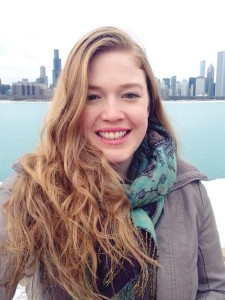 For as long as we’ve had the Internet, we’ve had online trolls. But what is a troll, really—and how do we tell the difference between trolling and more serious forms of abuse? To build a better and more empathetic web, researchers, designers, and users must work in tandem. In this talk, PhD student Lindsay Blackwell explores the ins and outs of misbehavior online, including efforts to regulate and prevent online harassment.
For as long as we’ve had the Internet, we’ve had online trolls. But what is a troll, really—and how do we tell the difference between trolling and more serious forms of abuse? To build a better and more empathetic web, researchers, designers, and users must work in tandem. In this talk, PhD student Lindsay Blackwell explores the ins and outs of misbehavior online, including efforts to regulate and prevent online harassment.
About Lindsay: Lindsay Blackwell is a PhD student at the University of Michigan School of Information’s Social Media Research Lab. Her research explores misbehavior in online communities, including trolling and online harassment. Prior to graduate school, Lindsay enjoyed a career in social media marketing, where she won several awards for her work with clients like I Love New York. You can follow Lindsay on Twitter (@linguangst) or by visiting www.lindsayblackwell.net.
Find her on Twitter as @linguangst
Brian Worthmann: “Journey to the Center of the Earth”
From the guy who brought you acoustic waves in the air and ocean a few Nerd Nites ago comes another talk about the inner layers of the Earth. 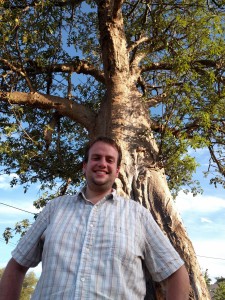 Many of us learned in high school (or earlier!) that the Earth is composed of a crust, mantle, outer core and inner core. But how do we know that? The easy answer is “well, smart scientists said so”. But assuming you consider that an unsatisfactory explanation, Brian will talk about some feats of science and engineering used in the last hundred years or so to explore what lies beneath our feet.
Many of us learned in high school (or earlier!) that the Earth is composed of a crust, mantle, outer core and inner core. But how do we know that? The easy answer is “well, smart scientists said so”. But assuming you consider that an unsatisfactory explanation, Brian will talk about some feats of science and engineering used in the last hundred years or so to explore what lies beneath our feet.
About Brian: A graduate student at the University of Michigan in the Applied Physics Department, Brian spends his not-free time researching acoustics and talking about science with whoever wants to listen. And he spends his free time nerding out pretty hard about physics, math and engineering, and binge-watching House of Cards Season 4. Brian is a 2015 RELATE alum, and also one of the newest members of the RELATE coordinator team.
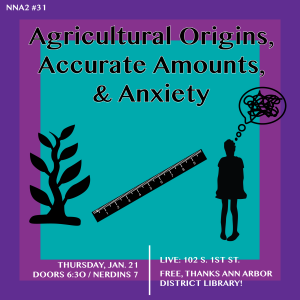 This month, Nerd Nite A2 turns FOUR! Yay, NNA2! Please join us to celebrate our anniversary and to get nerd-schooled on three fascinating topics that we likely encounter on a daily basis. If you’ve eaten food before, you’ll be interested to hear Joseph Tychonievich explain the origin stories behind fruits and veggies that we take totally for granted. Heather Wade is going to weigh the pros and cons of measurement history and it’s going to be the most accurate weighing any of you have ever experienced. Finally, Elizabeth Block is here to calmly explain how anxiety occurs and reassure you that your anxiety levels are normal – or are they???? So come on out for drinks, laughs, and some A+ nerd time.
This month, Nerd Nite A2 turns FOUR! Yay, NNA2! Please join us to celebrate our anniversary and to get nerd-schooled on three fascinating topics that we likely encounter on a daily basis. If you’ve eaten food before, you’ll be interested to hear Joseph Tychonievich explain the origin stories behind fruits and veggies that we take totally for granted. Heather Wade is going to weigh the pros and cons of measurement history and it’s going to be the most accurate weighing any of you have ever experienced. Finally, Elizabeth Block is here to calmly explain how anxiety occurs and reassure you that your anxiety levels are normal – or are they???? So come on out for drinks, laughs, and some A+ nerd time.
When: Thursday, January 21, 2016, doors at 6:30 pm, talks at 7 pm!
Where: LIVE, 102 S First St, Ann Arbor
$$$: NO COVER! Big thanks to the Ann Arbor District Library!!
Joseph Tychonievich – The Great Pleasure (and Long History) of Creating New Kinds of Plants
Basically as soon as agriculture began, humans started messing with plants, controlling their sex lives in order to transform the weeds around them into the grains and vegetables we depend on today. And while the crazy origin stories of things like corn and broccoli are in the distant past, I still use the exact same traditional methods to indulge my inner mad scientist and create new varieties of plants in my garden. The results are fun (and sometimes delicious) and will make you see the produce section of the grocery store in an entirely new way.
Heather Wade – Great, and Not So Great, Moments in Measurements: Wait! What Units Were You Using?
We encounter measurements every day, from the moment our alarm clock wakes us up and we adjust the water temperature for our shower, get dressed in clothes that fit, take doses of medicine, cook our meals & coffee, drive to work, buy gas

& groceries, turn on a light switch, pay our bills, use gas/electricity, watch TV, build anything, pay for anything. How do we know these measurements are correct? What happens when these measurements happen in another country? How do we know the measurements “translate” from country to country & language to language? International System of Units and metrological traceability are the backbone of measurements. What does that mean? What are examples of non-traceable measurements? What happens when measurements go wrong? Proper measurements bring confidence & peace-of-mind to our lives. Understanding what measurements are help to ensure better measurements happen and life goes more smoothly.
About Heather: UM grad and Calibration Officer at NSF International, headquartered here in Ann Arbor, Heather is an ASQ-Certified Calibration Technician (www.asq.org). She is a co-author of The Metrology Handbook, 2nd Edition, edited by Jay Bucher and has been published in Cal Lab Magazine: The International Journal of Metrology. She just completed her terms as Chair of ASQ’s Measurement Quality Division and also as Chair of ASQ’s Certification Board subcommittee for the ASQ-CCT. She has presented and published at national and international conferences. She also does outreach as a Metrology Ambassador. She has worked as a microbiologist, extraction and analytical chemist, and as a physical test engineer prior to embarking on her career in metrology and calibration.
Elizabeth Block, MD – Anxiety Disorders: When Worrying Gets in the Way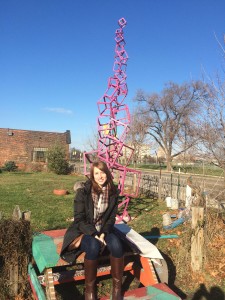
Anxiety disorders are among the most common mental health diagnosis in the United States. This talk will outline how anxiety is manifested in our bodies, common medications used to treat disorders, and therapeutic techniques used to manage (or alleviate) symptoms.
About Elizabeth: Elizabeth is a third year psychiatry resident at the University of Michigan, set to begin a fellowship in Child and Adolescent Psychiatry in July. In addition to anxiety disorders, her professional interests include psychotic disorders and increasing mental health awareness.
We hope you have a very happy holiday season!

 What’s all the “Fe”ss about? We’re not the only organisms that need Iron, which can mean we have some competition in getting the nutrients we need. Ada Hagan breaks down the ins and outs of Iron and bacteria. Even the most well-nourished body and brain can still learn a LOT about consciousness and psychoactive substances. Research on psychedelics is only just now recovering fromits implosion in the 70s, following the heydey of LSD research in the 60s. What does our current understanding of the brain tell us about the psychadelic experience? Dr. George A. Mashour walks us through a little research history and leads us through his present exploration of ketamine.
What’s all the “Fe”ss about? We’re not the only organisms that need Iron, which can mean we have some competition in getting the nutrients we need. Ada Hagan breaks down the ins and outs of Iron and bacteria. Even the most well-nourished body and brain can still learn a LOT about consciousness and psychoactive substances. Research on psychedelics is only just now recovering fromits implosion in the 70s, following the heydey of LSD research in the 60s. What does our current understanding of the brain tell us about the psychadelic experience? Dr. George A. Mashour walks us through a little research history and leads us through his present exploration of ketamine.
Mark your calendar, grab a friend, and say hey to a fellow nerd! We’ll see you at LIVE with a frosty beverage in hand for August’s edition of Nerd Nite!
When: August 20: 6:30 doors, 7pm nerd space and time
Where: LIVE, 102 S First St, Ann Arbor
$$$: NO COVER because Ann Arbor District Library!
The Battle for Iron: What’s all the “Fe”ss about? – Ada Hagan
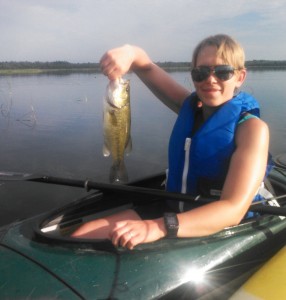
989.535.5
Iron is an important nutrient that we all make sure to get enough of in our diets. Did you know bacteria need it too though? Come learn about the battle invading bacteria wage against your body over iron atoms. Those bacteria have some pretty cool tricks up their sleeves, but so do we! That is, if we learn enough about it…
About Ada: Ada is a PhD student in Microbiology and Immunology and spends her days doing recon on the strategies bacteria use to invade our bodies. She is passionate about communicating science because she feels the more we all know about science and how things work, the better choices we can make about our lives. In her spare time she enjoys being outdoors with her dogs, and fishing with her husband. Ada is also involved with MiSciWriters, a student-run science writing blog.
The Psychedelic Brain – Dr. George A. Mashour
Psychoactive substances have been known since antiquity and modern psychedelic subculture
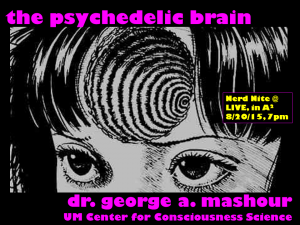
underwent an explosion in the 1960s followed by an implosion in the 1970s. More recently, the neuroscience of psychedelic drugs has emerged from the shadows of a dark past. What are the neural correlates of the psychedelic experience? What does this phenomenology and neurobiology tell us about the functioning of the brain? I will discuss these questions as well as my own research on ketamine.
About George: Dr. Mashour is a neuroscientist, anesthesiologist and the founding director of the Center for Consciousness Science at the University of Michigan.

























